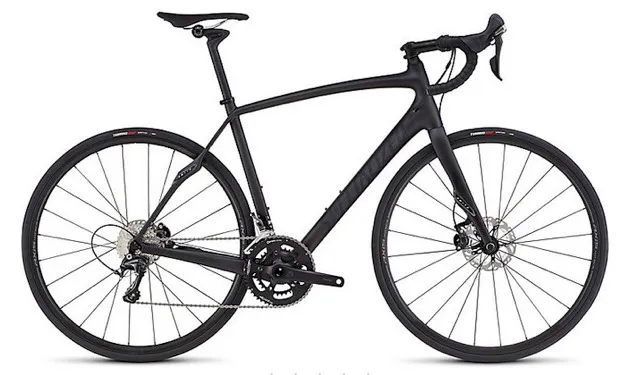Biking is a fast-growing way to keep fit in the UK, whether that’s on the road, off the beaten track or more extreme variants down mountains. Road biking in particular has developed rapidly over recent years with new technology and gadgets being developed all the time to help you ride harder, longer and safer.
Get on your bike
New bikes include a range of features tailored to how you intend to ride. Getting good advice from a local bike store is essential. As with any new tech, it’s important to get used to it before making a purchase or setting out on a virgin ride, so make sure you take time to go on a test ride or practice in a local park.
What are you ‘weighting’ for
Weight is important, and spending more on a bike will get you a carbon-fibre frame that gets the weight down without compromising stiffness. Some models, like the Roubaix SL4 Comp Discfrom Specialized, offset the stiffness with Zertz technology inserted into the structure to absorb road vibrations and reduce fatigue.

Hydraulic or disc bike brakes?
It’s all very well getting up to speed on a bike, but what about when it comes to stopping? Hydraulic brakes do away with the need for wires to translate the brake lever pull to the wheel and by doing so avoid problems arising from brake cables stretching.
Disc brakes are another consideration. Although these do add weight, they apply the stopping pressure to a metal disc rather than the rim of the wheel. This not only improves stopping but avoids wear on the wheel.
Staying safe on your bike at night
Early starts and long nights mean some additional biking technology can help you feel safe and confident on the road when it is dark.
Firstly there is navigation, ensuring you know where you are going and how far you have to go to get back to base. There are loads of bike-based GPS units available, like the Garmin Edge 1000, offering a clear screen and interface to minimise distraction when riding.
A more recent innovation comes in the form of traffic awareness tech. This works both ways, helping the rider be more aware of other vehicles on the road as well as ensuring they are visible to drivers. The Varia Rearview Radar not only offers a bright read light but also incorporates a RADAR to detect when vehicles are approaching from behind. A small handlebar-mounted display indicates how far other traffic is behind you so you can take care to stay steady as they pass.
It’s a great use of existing technology that makes a big difference to both confidence and safety when cycling at night.

Looking good on your bike
The final place technology is making a difference for riding is in clothing. Of course a good helmet is essential and here you will find a variety of new materials offering both robust and light protection. Furthermore, modern designs are sculpted to channel air over the head for cooling — and for cold British night rides you may want to consider a model like the Bell Star Pro that has closable vents to keep the heat in.
Although bike shoes have previously been the preserve of elite riders, when you realise special cleats, which attach the shoe to the pedal, can save as much as 20% of your effort, it makes them something everyone should consider for all but the shortest of rides. Make sure when you are using bicycle cleats for the first time to practice somewhere safe like a local park to ensure you are comfortable with having your feet strapped in (and avoid undignified falls) when you hit the road.
Gloves are of course essential, the Giro 100 Proof offer a novel split finger design for added warmth. In general, layers are important to keep the heat in with a base layer trapping heat and an outer keeping the wind off. The science of this has again evolved a lot over recent years with the best clothing carefully body mapped to add extra insulation in the chest and less on the back.
There is a lot to consider with all this. However, with a bit of research and further advice from knowledgeable local bike dealers you will be able to ensure the technology is working with you rather than against you.
Andy Robertson is a freelance technology expert for national press and broadcast media. He also runs the Family Gamer TV YouTube channel
Follow Science Focus onTwitter,Facebook, Instagramand Flipboard